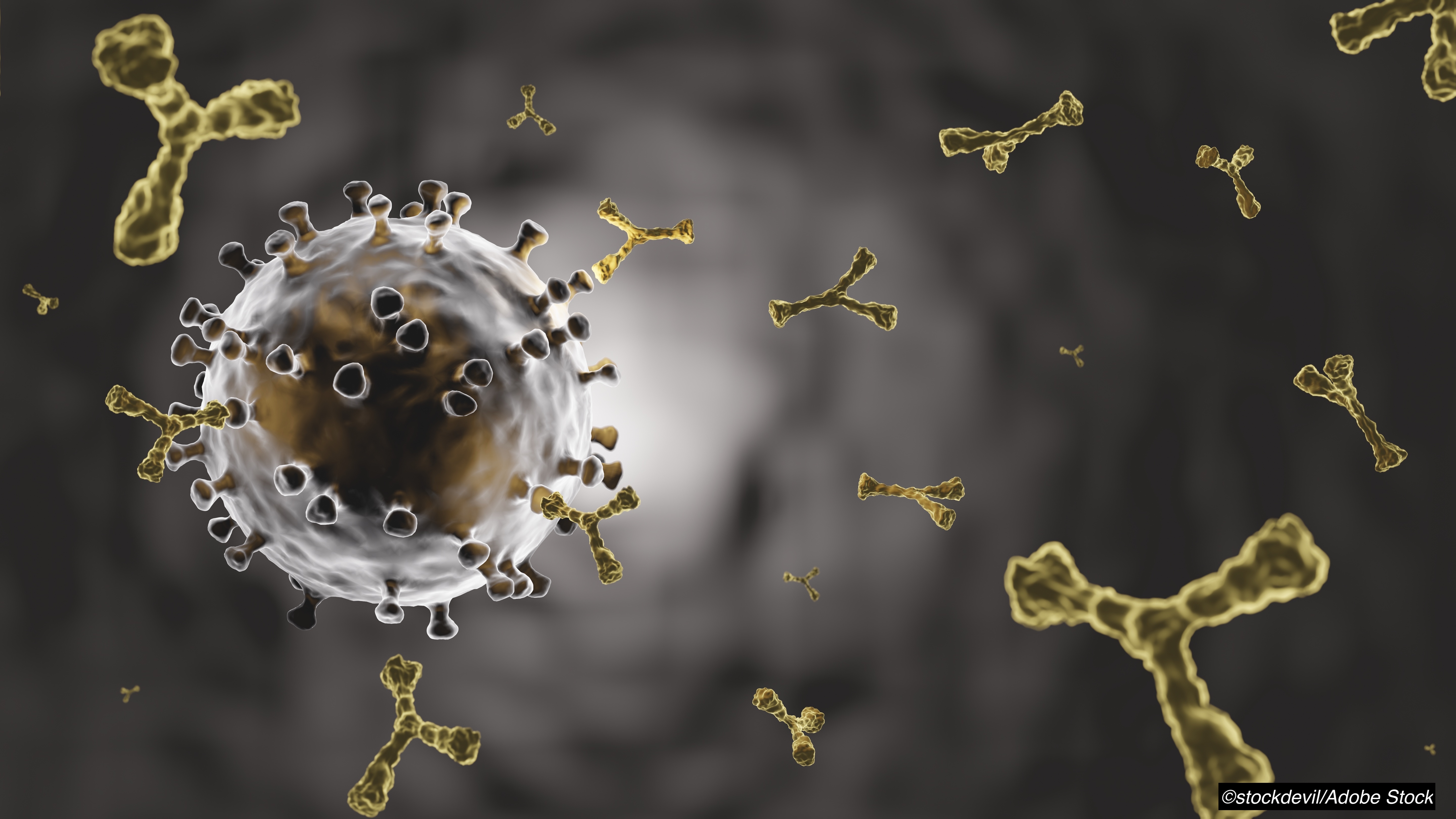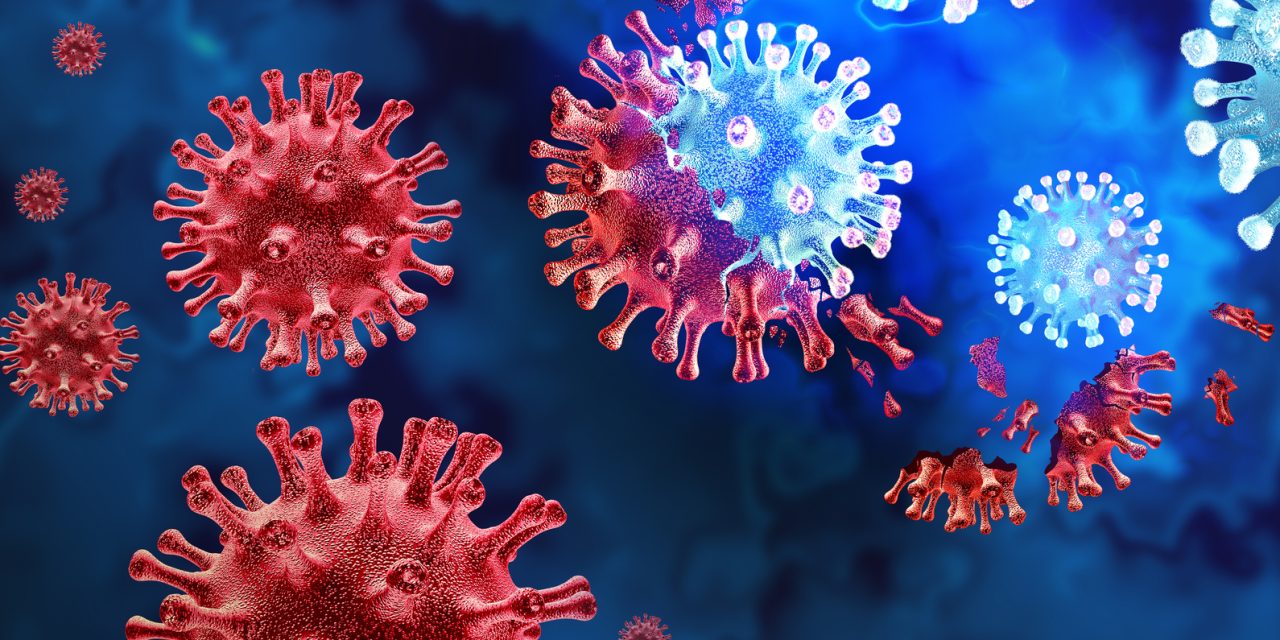
SARS-CoV-2 infection may trigger long term reactivity of autoantigens, even in people who experience mild symptoms of Covid-19 or no symptoms at all, new research suggests.
When investigators looked for autoantibodies linked to a range of autoimmune diseases in the healthcare workers with confirmed prior SARS-CoV-2 infection, they found that a large percentage had detectable circulating antibodies up to 6 months after infection.
Earlier studies have shown robust autoimmune responses in people recovering from severe Covid-19, but the study is the first to show long-term autoantibody response in previously infected people who had few or no symptoms.
The study, published in the Journal of Translational Medicine, also showed a sex-specific pattern of autoantibody response in the healthcare workers previously infected with SARS-CoV-2.
While women are more likely than men to develop autoimmune diseases, the males in the study tended to have more exaggerated and persistent antibody responses than women following symptomatic Covid-19.
The seemingly paradoxical finding may help explain why men with Covid-19 develop severe, life-threatening symptoms more often than women.
“The fact that we saw this more in males doesn’t make sense in the larger autoimmune world, but it makes sense in the context of Covid-19,” researcher Susan Cheng, MD, MPH, of Cedars-Sinai Medical Center, Los Angeles, said in an interview with BreakingMED.
The Cedars-Sinai study included 177 healthcare workers with previous IgG serology-confirmed SARS-CoV-2 infection (65% female, mean age, 35 years). None of the workers were experiencing long-Covid symptoms up to 6 months after infection.
Blood samples taken from the previously infected workers were compared to blood samples from 53 pre-pandemic healthy controls (49% female), and the samples were tested for 91 protein antigens and cytokines in a multiplexed bead-based assay using the commercial platform Luminex Flex-MAP 3D.
For each participant, sociodemographic data, serological analyses, SARS-CoV-2 infection status, and Covid-19 related symptoms were collected by an electronic questionnaire. Symptom burden score was constructed based on the total number of 21 reported symptoms experienced within 6 months prior to the blood draw.
Among the previously infected healthcare workers who experienced mild symptoms of Covid-19, 58 of 91 tested antigens (64%) showed positive reactivity in men versus 33 out of 91 antigens (36%) in women.
Among workers who experienced more severe Covid-19 symptoms, autoantibodies to 75 of the 91 antigens (82%) showed positive reactivity in men, versus 16 of 91 antigens (18%) in women.
Among healthcare workers who remained asymptomatic following SARS-CoV-2 infection, women showed more evidence of autoimmune activation than men.
The patterns of elevated autoantibodies seen in the healthcare workers previously infected with SARS-CoV-2 were not seen in the controls whose blood samples were collected prior to the emergence of Covid-19.
“Importantly, both sets of sex-specific auto-antibody reactivity patterns were found to persist up to 6 months following associated symptomology,” the researchers wrote.
Cheng told BreakingMED that it is not clear if the autoantibody activity identified in the previously infected healthcare workers will have clinical significance over time.
“What we saw was a generalized response not as severe as what we would expect to see with classic autoimmune disease. But the persistence tells us there is a memory related to (SARS-CoV-2) infection that could, potentially, lead to (immune system) overreactivity,” Cheng said.
The Cedars-Sinai research team hopes to measure the same autoantibodies in patients with long Covid.
“We were very surprised to see the persistent autoantibody responses in this study involving people who had fully recovered from Covid,” Cheng said.
Because patients with long-haul Covid have very diverse symptoms, the hypothesis is that patterns of autoantibody response will differ based on symptoms.
“Some patients with long-Covid experience only brain fog, while others have constant chest pain or are unable to get around due to muscle weakness and shortness of breath,” Cheng said. “When we have a chance to measure these autoantibodies across these different long-Covid types, we expect to see different profiles that are exaggerated compared to what we are seeing in the healthier patients.”
Limitations of the current study include the fact that it may not be generalizable to other populations since the study was done at a single center by healthcare workers who volunteered and responded to surveys and was focused on milder Covid-19 with self-reported symptoms with less than 2% of the respondents having been hospitalized.
-
SARS-CoV-2 infection may trigger long term reactivity of autoantigens, even in people who experience mild symptoms of Covid-19 or no symptoms at all.
-
When investigators looked for autoantibodies linked to a range of autoimmune diseases in the healthcare workers with confirmed prior SARS-CoV-2 infection, they found that a large percentage had detectable circulating antibodies up to 6 months after infection.
Salynn Boyles, Contributing Writer, BreakingMED™
This research was funded by Cedars-Sinai Medical Center, the Erika J. Glazer Family Foundation, the NIH, and others. Susan Cheng reported no relevant disclosures. Several study researchers reported being employed by Oncimmune, a company that performs the serological assays on the biospeiments collected for the study.
Cat ID: 190
Topic ID: 79,190,730,933,190,926,192,927,151,928,195,929,925,934


